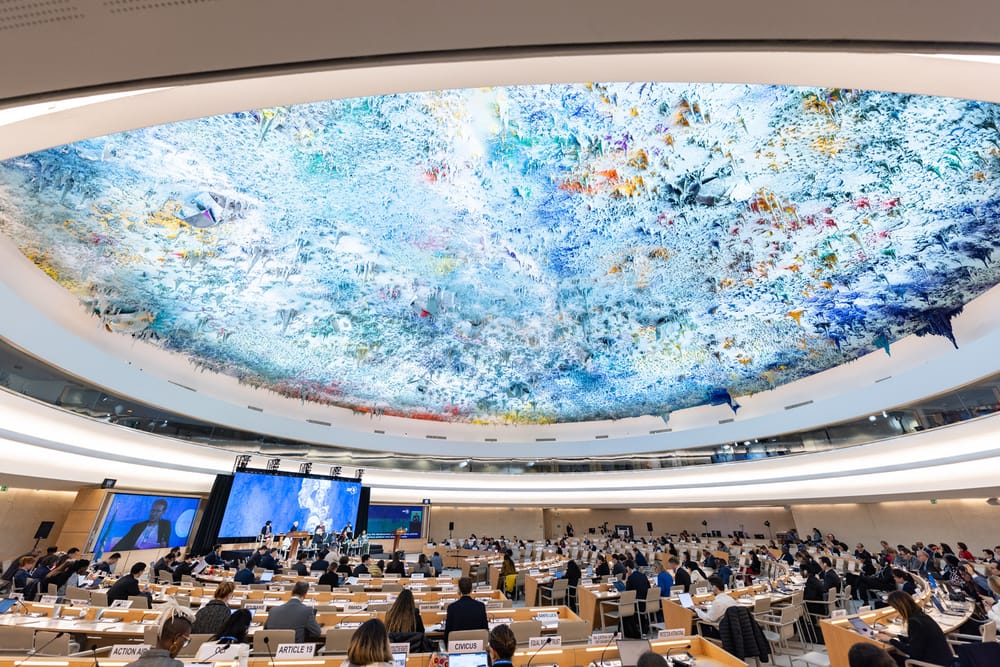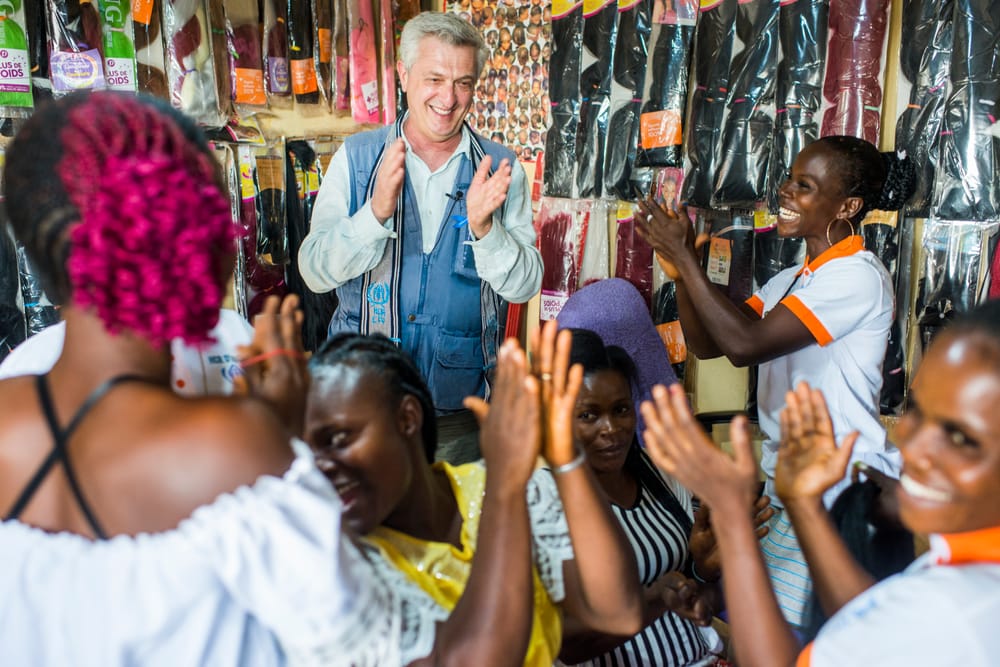By Gabriel Gomes Couto, Swetha Ramachandran, Léna Rieder-Menge, Achim Wennmann and Xinyu Yuan
Asking questions is a way to focus our attention in a particular direction and to reflect on our inquiries and actions. Questions are at the heart of appreciative inquiry – the model of organisational change that focuses on the best of ‘what is’ in order to develop ideas of ‘what could be’ and the processes of getting there.
GPO guiding questions
Since its inception, the Geneva Policy Outlook has grown into a network of about 150 senior policy makers working in Geneva’s global policy sphere. In 2023, we organised 16 informal exchanges and countless bilateral meetings discussing a wide array of questions to explore how International Geneva should adapt as a global hub in a rapidly changing world. These guiding questions included:
- How does the world change? For whom does it change and who shapes it under what circumstances?
- What can be done in response to these changes and what concrete actions are necessary to respond? What has already been done? What timing, speed and scale are necessary to design realistic responses, and responses that matter? What type of resources are needed?
- What is going on in Geneva? Who is doing what to respond to change and how? What is going on elsewhere and how is Geneva connected to other policy hubs?
- What is the role of Geneva’s policy space to respond to global change? How should International Geneva adapt and what can it contribute to understanding change and responding to needs?
Going into 2024, the Geneva Policy Outlook will maintain these guiding questions and tackle other emerging concerns. That being said, from the past year, we have compiled the following forward-looking questions which can serve varied stakeholders in unique ways: from helping professionals in their strategic reflections to assisting researchers and students with finding policy-relevant research questions.
Inclusion: Who do we listen to?
The first line of questioning goes into the direction of how International Geneva will deal with an ever-growing diversity of views in the future. How can Geneva-based institutions ensure they are listening to and engaging with as many constituencies as possible? And how are “constituencies” defined in the first place? This also links to the inquiry on why certain actors warrant ‘listening to’ in the first place: could their extent of power be attributed to material resources or could such a move also entail symbolic concerns of representation and optics? How should different ideas, positions and views be absorbed into formal processes in order to build more accountable multilateral systems? Linking to this, what mechanisms are necessary to moderate different viewpoints? How can we better articulate and represent the views of youth, the elderly, and of women, girls and gender minorities?
Dialogue: How do we speak to each other?
How do we translate dialogue into understanding, trust and actionable insight?
In a world with a constant information overload - and mis- and disinformation - how do we communicate with others as institutions, groups, or individuals? How do we understand what is important and which institutions do we speak to? What are the instruments or spaces required to maintain dialogues open even in difficult times and how do we protect such spaces? How do we translate dialogue into understanding, trust and actionable insight? Is technology and AI a risk or opportunity for dialogue? And how?
Systems: What global governance for the future?
A key observation from the GPO exchanges was that it is important to shift the question from ‘what is the future of the current global governance system?’ to ‘what is the global governance for the future?’ This raises the points such as what is the role of the UN in global governance for the future? What is the right degree of commitment to maintain the current UN system over additional layers of protection for global peace and security? What priorities does global governance need and who has a voice in defining priorities? What is the right balance between hierarchies and networks in order to get things done? In what areas are reforms of existing instruments and approaches sufficient and which areas require new ones?
Speed and scale: How quickly can we deliver solutions and solve problems?
What kind of mechanisms, coalitions, or ways of working are necessary to speed and scale up solutions?
In a world of multiplying crises, new and bigger problems require urgent solutions before the old ones could be addressed, revealing issues of narrow institutional bandwidth, short attention spans, and technical challenges of all types. If the ultimate measurement unit for the ‘success’ of multilateralism is its capacity to quickly address and resolve problems at the right scale, what would such measurement look like beyond anecdotal evidence? And who drives it? What kind of mechanisms, coalitions, or ways of working are necessary to speed and scale up solutions? What is the role of technology and artificial intelligence in delivering solutions and solving problems? How do we deal with constituencies that are not interested in solutions or serve as ‘spoilers’? What is the specialised role of Geneva and other global hubs for speeding and scaling solutions?
Money: Who will pay for multilateralism?
Is the philosophy of ‘effective altruism’ a risk or an opportunity for multilateralism?
There is no shortage of grand ideas for the future of multilateralism, yet when it comes to the question of who pays, many deflate quickly owing to lack of funding. Should states remain the sole funders of multilateralism? Are existing top funders or emerging powers ready to pay more? Are current top funders of multilateralism ready to welcome new funders? How could foundations or private capital contribute to paying for a multilateralism for the future? Is the philosophy of ‘effective altruism’ a risk or an opportunity for multilateralism? And how?
Taking a step back: Are we asking the right questions?
In conclusion, the ultimate question is: Are we asking the right questions? Our biases, worldviews and life experiences nudge our questions in a specific direction. This is why it is important to take a step back and reflect on the questions guiding our inquiry and action. In conclusion, we therefore ask you – our readers: What are your questions for 2024?




